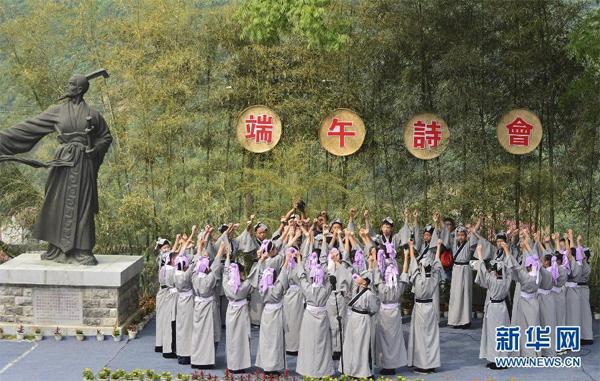The Dragon Boat Festival is one of the most popular festivals in China and has been celebrated for thousands of years. So why is this, and what lies behind the festival’s long history?
Legends, food and games: the perfect combination to exemplify the Chinese holiday spirit.
Having been celebrated for thousands of years, the traditional Chinese festival comes with numerous tales and legends attached to it. The most famous and widely accepted story of its origin comes with the story of the 3rd century BC poet, Qu Yuan.
Qu’s life is documented in Shiji, or Records of the Grand Historian, which was written from 109 to 91 BC. A highly intellectual and respected royal servant, Qu was a loyal confidante of the king. However, he was continually slandered by politicians hoping to blacken his name in the court and ultimately he was exiled by the king. Without Qu’s guidance however the state was soon invaded by a neighbouring dynasty. Upon hearing this news, Qu Yuan threw himself into the Miluo River.
Legend has it that people living near the river used dragon boats to try to search for and rescue his body, albeit unsuccessfully. They also threw rice balls into the water to ensure the fish didn’t eat him. Eating wrapped up pieces of sticky rice is a tradition that has been kept alive today in the form of Zongzi. Coupled with the dragon boat races around the country the day of Qu Yuan’s suicide has become the Duanwu Festival.

The Dragon Boat Festival is one of the most popular festivals in China and has been celebrated for thousands of years.
However, it might not be completely accurate to attribute the origin of the festival to solely to Qu Yuan’s suicide. Records show that even before this people marked the day.
The name Duanwu literally means the fifth day of the fifth month in the lunar calendar. According to Chinese myths, this is an ominous date, which may also explain why people assumed that distinguished people had died on that day.
In order to protect people from the problems that may arise on this unwelcome day, people traditionally cut branches of wormwood plants, boil them, or hang them above their doors, to repel pests and evil spirits. Some people even bathe in wormwood water, believing it to be a good way to ensure a safe summer free from mosquitoes.
Whether as a day to commemorate the great, or a day to ward off evil spirits, Duanwu has combined many unique traditions and customs over the years, which now give people another good excuse to celebrate. So, grab a Zonzi and get to the river.
Special Coverage:

